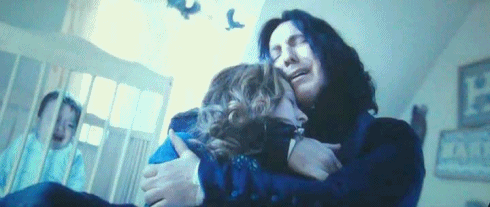Many, many things have ended this year—my grandfather’s life, my high school education, my stint with my crappy excuse for a laptop, the Harry Potter franchise as we know it, government-funded manned spaceflight. But curiously, none of these terminations make me sad. Sentimental, perhaps, but not sad.
I’m no theologian, and my views on practically everything are probably largely skewed from reality, but I find it hard to imagine anything concept or thing that is perpetual, save the law that nothing is perpetual. Either that, or everything is perpetual, and part of a larger scale (but for the purpose of this blog post, this theory is irrelevant). It’s difficult for me to theorize in between these two extremes.
As much fun as it is to imagine a machine of perpetual motion, or how comforting it is to convince myself of a continuous being with no end or beginning, the likelihood of either idea to my humble human mind is slim. It does not upset me when things reach their end at the expected point, because I’m under no illusions that anything has a constant perpetuation for eternity. With my grandfather, or high school, or Harry Potter, or government-funded manned spaceflight, it was inevitable that these things had to end. Am I completely callous that I’m happy about death? No. Just accepting that it happens.
The thing about death is that I don’t think it can exist without birth. The things in this material world do not reside on a mere line, but an infinite series of line segments. Just as ends are a part of this reality, so too are beginnings. The beauty of this world is that it’s constantly changing. Chapters will end, but the book continues. Is it cliché? Yes. But the realization of this helps so much in living in the present and for the future, rather than dwelling in the past.
I am not upset about high school ending—I have college, a career, and life to look forward to. Nor am I upset about Harry Potter—the thing about literature and film, is that they don’t occur in a single point in time. And new literature and film is constantly being released, serving as a artful documentation of who we were and are as a people. The end of government-funded manned spaceflight is not the end of an era, but the first chapter of a brilliant and beautiful story of competition and discovery, and we still have much of the tale to uncover. Given the laws of a function f(x), no x coordinate can repeat twice. But that’s what makes it a function, just as progress defines humanity.
-----------
On another note... so basically, Dumbledore is Morgan Freeman?
 It just seemed appropriate. And I like to spoil things. I'm sorry if the flashing-moving-emotionalness is distracting.
It just seemed appropriate. And I like to spoil things. I'm sorry if the flashing-moving-emotionalness is distracting.
No comments:
Post a Comment